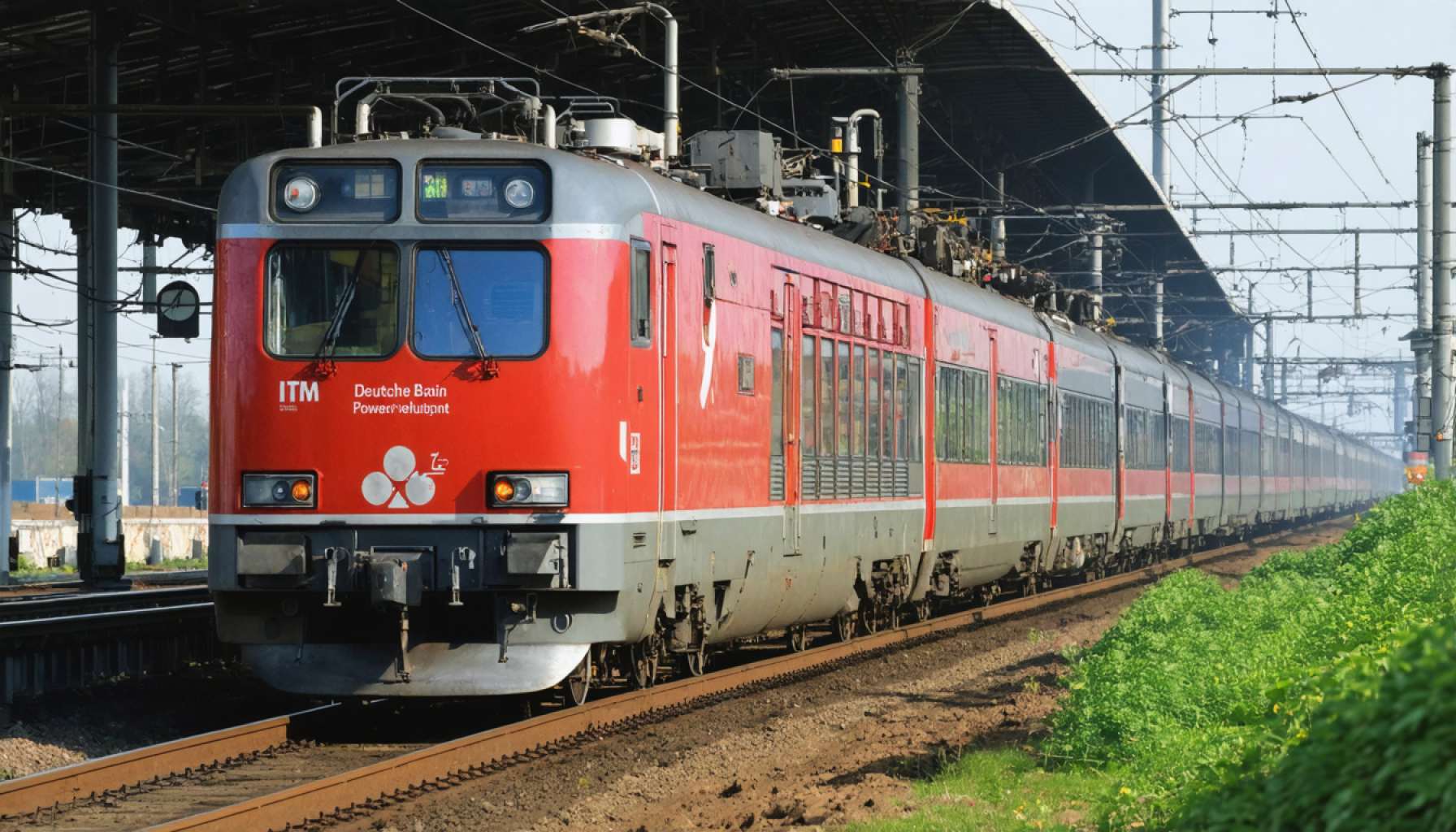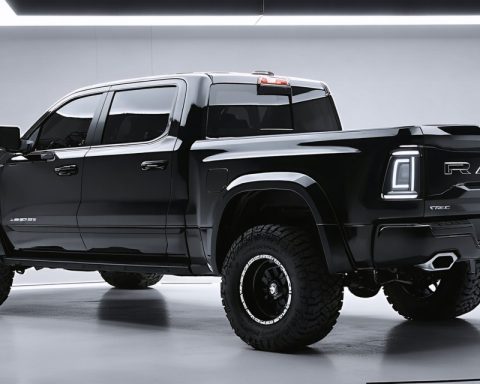- Deutsche Bahn partners with ITM Power to develop hydrogen-powered trains, promoting quieter and cleaner transportation.
- The initiative supports Deutsche Bahn’s commitment to replace 1,300 diesel locomotives with hydrogen engines by 2050, addressing global emission reduction goals.
- A $42 million contract with CaetanoBus introduces 60 hydrogen-powered buses, advancing the modernization of Deutsche Bahn’s fleet.
- The collaboration promises innovations in hydrogen technology and supply chains, emphasizing a sustainable future.
- This initiative highlights the potential of clean energy as a legacy for future transportation systems, balancing modernity with ecological responsibility.
The clattering hum of trains across Europe might soon have a quieter, cleaner counterpart as Deutsche Bahn teams up with ITM Power to harness the power of hydrogen. This partnership sparks a transformative shift in the transportation landscape, promising to redefine how we move goods and people.
Imagine a world where the familiar diesel roar is replaced by the gentle purr of hydrogen engines. Deutsche Bahn, with its finger on the pulse of change, has already started turning this vision into reality. It’s a daring dance with sustainability, demonstrating just how seriously the German rail titan takes its ecological commitments.
Amid skyscrapers of ambition, Deutsche Bahn stands resolute in its pledge to phase out 1,300 diesel locomotives, a bold stride aiming for completion by 2050. This aligns flawlessly with the global clamor to curb emissions, and Deutsche Bahn’s strategy is a testament to progress wrapped in purpose.
But it’s not just the trains that are evolving. A $42 million deal sealed with CaetanoBus brings 60 hydrogen buses to the forefront, intertwining modernity and tradition as part of a sweeping initiative to rejuvenate DB’s fleet. Buses once guzzling diesel will soon glide silently and cleanly across urban landscapes, exemplifying Deutsche Bahn’s mission to rewrite the rules of green transport.
The collaboration with ITM Power offers more than vehicles; it promises a revolutionized supply chain and breakthrough hydrogen technologies. Together, these innovators are delving into the future, determined to reduce the carbon footprint and sculpt a more sustainable tomorrow.
The takeaway? Embracing such advancements isn’t just about technology; it’s about crafting a legacy for the planet. Deutsche Bahn and ITM Power aren’t just laying tracks or engineering buses—they’re paving pathways to a future fueled by clean energy. What does it mean for us? Hope, change, and a decisive step toward an era where transportation doesn’t cost the Earth.
Discover the Hydrogen Revolution: Deutsche Bahn’s Path to a Greener Future
Hydrogen Trains: The Future of Green Transportation
Deutsche Bahn’s ambitious strategy to replace diesel locomotives with hydrogen-powered alternatives represents a significant shift toward sustainable rail transport. The partnership with ITM Power is projected to have profound implications not only for Germany but also for global transportation networks.
Key Facts and Figures
1. Hydrogen Economy Growth: The hydrogen fuel cell market is expected to grow at a CAGR of 25.09%, potentially reaching $13.74 billion by 2026 according to Allied Market Research. This growth is driven by increasing demand for clean energy solutions in transportation.
2. Environmental Impact: Hydrogen trains, such as Alstom’s Coradia iLint, can reduce carbon emissions by up to 50% compared to diesel trains. This effort aligns well with the European Union’s Green Deal and its goal to become the world’s first climate-neutral continent by 2050.
3. Energy Efficiency: Hydrogen fuel cells convert chemical energy directly into electricity with a higher efficiency than combustion engines, which means fewer resources are required for operation.
How-To Steps: Transitioning to Hydrogen
1. Evaluate Current Fleet: Determine which diesel locomotives are viable for replacement or retrofit with hydrogen systems.
2. Infrastructure Setup: Develop hydrogen refueling stations and establish supply chains for hydrogen procurement.
3. Pilot Programs: Implement pilot tests for hydrogen trains on low-traffic lines to monitor performance and troubleshoot issues.
4. Training: Provide training for maintenance staff and operators on new technologies and safety protocols.
Real-World Use Cases
Countries like Japan and South Korea are already integrating hydrogen transportation into their public services. Japan’s hydrogen strategy includes running hydrogen buses during the Tokyo Olympics, demonstrating the technology’s viability in public transportation.
Market Forecasts & Industry Trends
The European rail market is forecasted to grow as governments invest in sustainable transport solutions. The deployment of hydrogen trains is part of a broader trend toward decarbonization and digitalization within the transportation sector.
Features, Specs & Pricing
– Hydrogen Trains: Typically feature ranges of up to 1,000 km on a full tank, minimal recharging time compared to battery-electric trains, and enhanced energy density of hydrogen over traditional batteries.
– Costs: Initial investments can be substantial. However, the lifecycle costs potentially favor hydrogen trains due to reduced fuel expenses and lower maintenance requirements over time.
Security & Sustainability
Hydrogen, while offering a zero-emission solution, must be stored and transported safely due to its high flammability. Advances in hydrogen storage technology, such as high-pressure composite cylinders, mitigate these risks.
Pressing Questions: Answered
– How safe are hydrogen trains? Modern safety standards and robust containment systems ensure that hydrogen trains are as safe as conventional trains.
– What are the economic impacts? While the upfront cost is high, potential savings from fuel and reduced emissions make hydrogen economically viable long-term.
– Are hydrogen trains a global solution? Hydrogen’s versatility means that while it is a good solution for some situations, electric trains still have advantages where extensive electrification is already in place.
Actionable Recommendations
– For Governments: Invest in hydrogen infrastructure and create incentives for industries to adopt hydrogen technologies.
– For Companies: Explore partnerships with technology providers like ITM Power to innovate and implement hydrogen solutions.
Quick Tips
– Monitor Hydrogen Market: Keep an eye on advancements in hydrogen production and storage technologies to capitalize on future improvements and cost reductions.
– Sustainability Alignment: Align company goals with international sustainability goals to improve brand reputation and compliance with future regulations.
Explore more about the future of transportation and sustainable practices at Deutsche Bahn’s official website.











